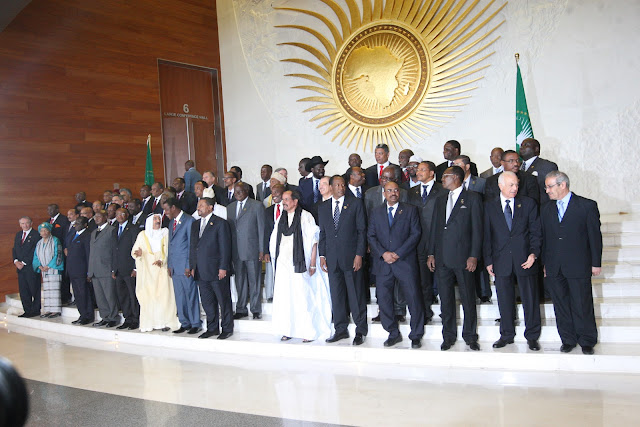South Africa's Nkosazana Dlamini-Zuma won a tight fought vote to become the new head of the African Union Commission, the first woman to hold the post, African leaders said.
She beat the incumbent, Jean Ping of Gabon, in a closely fought election over several rounds of voting.
"Now we have the African Union chair Madame Zuma, who will preside over the destiny of this institution," Benin's president and current AU chairman Thomas Boni Yayi said.
Dlamini-Zuma, 63, an experienced diplomat, is a veteran of the fight against apartheid. A doctor by training, she has served as health, interior and foreign minister in South Africa.
Her former husband, South African President Jacob Zuma, was one of the first to offer his congratulations after the vote at the AU summit in the Ethiopian capital."It means a lot for Africa... for the continent, unity and the empowerment of women -- very important," Zuma said.
Dlamini-Zuma's win follows her challenge six months ago to unseat Ping, the former commission chairman, which ended in deadlock after neither won the required two-thirds of the vote, leaving Ping in the post.
"She's a freedom fighter, not a bureaucrat or a diplomat," said Ugandan President Yoweri Museveni, beaming enthusiastically.Noureddine Mezni, spokesperson for the outgoing chairman told AFP that Ping had acknowledged defeat.
He "has accepted the results of the elections and wishes Madame Dlamini-Zuma the very best."He expressed his readiness to cooperate with her to work together for the unity of the continent."
Erastus Mwencha of Kenya was re-elected as deputy chair of the AU Commission, he added.
Members of the South African delegation smiled and congratulated one another as they filed out of the conference hall.
"It's good for southern Africa. We (in southern Africa) never had this job," a delegate from Zimbabwe told AFP with a broad grin.
Officials said the elections went to four rounds of voting before Dlamini-Zuma won 37 votes, three more than the required majority, to confirm her win over Ping.
Jakkie Cilliers of the South Africa-based Institute for Security Studies told AFP how Dlamini-Zuma's score had crept up from one round of voting to the next.
"She got ahead in the first round and after that the momentum kicked in," said Cilliers. "The heads of state wanted a decision."
Dlamini-Zuma's win had brought "clarity as to who's in charge" at the AU, after six months of deadlock over the leadership issue, he added.
Some analysts say South African has violated an unwritten tradition that continental powerhouses do not run candidates for the post, but leave smaller nations to take the job -- and that this had sparked bad feeling.
Before the vote however, Dlamini-Zuma played down concerns that the vote could divide the AU."I don't think the continent will be polarised," she said.
The winner would "make sure they work with everybody, irrespective of where and who they voted for," she added.
Cilliers said he was optimistic that divisions created by the vote would heal.
"She'll be an inclusive chair, she won't be divisive ... She was a very competent foreign minister and even better at home affairs (the interior ministry)," he said.






































